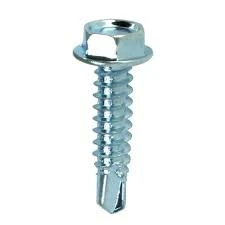M4 Hex Head Bolts for Secure and Reliable Fastening Solutions
Understanding M4 Hex Head Bolts The Essential Fastener for Your Projects
When it comes to fastening components in mechanical, automotive, or construction projects, the choice of fasteners is crucial. Among these, the M4 hex head bolt stands out for its reliability and versatility. This article explores the characteristics, applications, and benefits of M4 hex head bolts, making them a preferred choice for engineers and DIY enthusiasts alike.
What is an M4 Hex Head Bolt?
The designation M4 indicates that the bolt has a nominal diameter of 4 millimeters. Hex head bolts are characterized by their hexagonal head, allowing for a firm grip using a wrench or socket. The head provides a larger surface area, which distributes the load and prevents the bolt from sinking too deeply into the material being fastened.
M4 hex head bolts are typically made of various materials, including steel, stainless steel, and sometimes alloy materials. The choice of material affects the bolt's strength, resistance to corrosion, and overall durability.
Key Features of M4 Hex Head Bolts
1. Size and Dimensions The M4 designation specifies the diameter, but these bolts also come in various lengths (measured from the base of the head to the tip) to accommodate different applications.
2. Strength Grades Hex head bolts are categorized by strength grades (e.g., 8.8, 10.9, 12.9), which denote the tensile strength and yield strength. Higher grades indicate stronger bolts, making them suitable for more demanding applications.
3. Thread Type M4 hex head bolts typically feature metric threads, which are standardized and allow for compatibility with other metric fasteners.
4. Coatings Many M4 hex head bolts come with coatings or treatments (like zinc plating) to enhance corrosion resistance, making them suitable for outdoor or harsh environments.
m4 hex head bolt

Applications of M4 Hex Head Bolts
The versatility of M4 hex head bolts makes them suitable for various applications, including but not limited to
- Automotive Assembly M4 hex head bolts are commonly used in vehicle assembly due to their strength and reliability. - Electronics In electronic devices, they secure components, ensuring structural integrity. - Furniture Construction Many flat-pack furniture manufacturers use M4 bolts for ease of assembly and disassembly. - Machinery M4 bolts are often found in machinery where lightweight fastening is required without sacrificing strength. - DIY Projects For hobbyists and DIY enthusiasts, M4 hex head bolts are popular for assembling custom projects, prototype constructions, or repairs.
Advantages of Using M4 Hex Head Bolts
1. Ease of Use The hexagonal shape allows for easy tightening and loosening with standard tools, making them user-friendly even for those with minimal experience in hardware.
2. Load Distribution The design of the head helps distribute load effectively, reducing the risk of damage to materials being fastened.
3. Strength and Reliability M4 hex head bolts, particularly those with higher strength grades, provide assurance of durability and performance under stress.
4. Versatility With a range of sizes, materials, and coatings available, M4 hex head bolts can be used across numerous fields and applications.
Conclusion
M4 hex head bolts are more than just simple fasteners; they are critical components that ensure the stability and integrity of various constructions, whether mechanical or structural. Their blend of strength, versatility, and ease of use makes them a go-to choice for professionals and hobbyists alike. Understanding their features and applications can significantly enhance the effectiveness of your projects, ensuring they stand the test of time. Whether you're an engineer designing complex systems or a DIY enthusiast working on home projects, integrating M4 hex head bolts into your work will undoubtedly lead to more robust and reliable outcomes.
-
Weatherproof Plastic Expansion Anchors for OutdoorNewsJun.06,2025
-
Sustainability in the Supply Chain: Eco-Friendly TEK Screws ProductionNewsJun.06,2025
-
Load-Bearing Capacity of External Insulation FixingsNewsJun.06,2025
-
Double Head Bolts: Enhancing Efficiency in Industrial MachineryNewsJun.06,2025
-
Corrosion Resistance in Chipboard Screws: Coatings for Wholesale DurabilityNewsJun.06,2025
-
Butterfly Toggle Bolts : Enhancing Structural ResilienceNewsJun.06,2025
